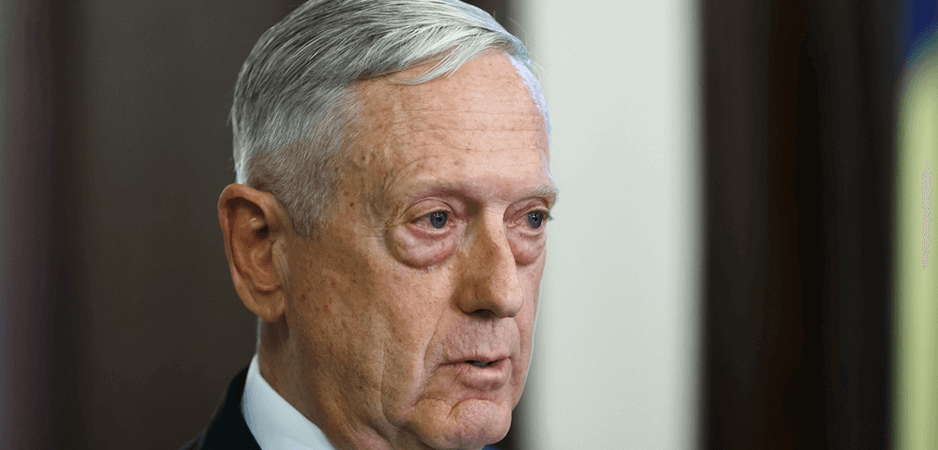The Trump administration seems to be disinviting everyone — from the Philadelphia Eagles to China.
Disinvite has to be the word of the week in Washington. On June 4, President Donald Trump noisily disinvited the championship football team, the Philadelphia Eagles, from the traditional scheduled meeting at the White House with the Super Bowl victors.
Several days later, US Secretary of Defense James Mattis decided to “disinvite China from the world’s largest annual naval exercise later this month.”
And, following the same pattern, Trump abruptly called off the planned talks with North Korea in Singapore before calling them on again just as abruptly.
Here is today’s 3D definition:
Disinvite:
A specifically presidential privilege that consists of rescinding an existing invitation for a person, a party or a notion with the symbolic intent of banishing them from the sunlight and glory of the Trump White House and Trump’s leadership of the world. Synonym: excommunicate.
Contextual note
Trump deemed the Philadelphia Eagles unworthy of being graced with his presence because they failed to show the correct level of adoration of the man and his office. The case of China is another kettle of fish. Objecting to China’s deployment of weapons and bombers in the South China Sea, Mattis decided it was time to pull back from what he termed to be America’s “cooperative stance.” Disinviting was the way to do it.
The secretary admitted that the disinvitation “was a relatively small penalty for China to pay.” This could constitute an admission of weakness on the part of the United States. But, he promised, there would be more to come, evoking “larger consequences in the future, when nations lose the ‘report’ [sic] of their neighbors.” (Bloomberg corrected to “rapport.”) He didn’t make clear what he meant by “lose the rapport,” but most observers believe this means the US expects to be successful in its attempt to put pressure on other Asian nations — in particular around the South China Sea — to force China to back down and, following the lead of Washington, disinvite Beijing from the common projects China has recently initiated across Asia.
Historical note
Secretary Mattis is right to take events that concern China’s action in Asia seriously. But some of his remarks addressed to the nations of the Shangri-La Dialogue security summit leave a strange impression of comic helplessness in the face of the tidal wave that China represents. He wants to suggest that there’s a kind of tug-of-war between the two current superpowers, and that it’s just a question of who can mobilize the most force and pull harder. The US has the force to confront China, but does it have the capacity to understand China and the current drift of history?
Mattis’ forced optimism leads him to state, concerning China’s recent decisions, “It’s a very shaky foundation when we believe that militarizing features are somehow going to endorse their standing in the world.” This coming from the nation that has militarized practically every corner of the globe. Then he hits the height of comedy with this line: “And you have to wonder why military actions that are politically injurious would be engaged in by a nation.”
Many of us have been wondering for years!
Addressing the nations that the US considers allies, Mattis explained: “We have seen those who wanted to dominate the region come and go, and we have been with you. It’s not based on which party is in power.” Clearly, the Trump administration fails to inspire confidence.
In a curious reflection on history, Mattis evoked Thomas Jefferson “who anticipated this coastal region of America would become a gateway to the Pacific and open up vast opportunities for increased trade and commerce. America has expanded its engagement and deepened its connectivity across the region ever since.” That’s one way of summing up the history of manifest destiny, or the control of a continent ordained in not by the God invoked by settlers in the 19th century, then the new “god of connectivity” that Mattis appears to believe in. And the destiny has spread to connecting (and controlling) across the Pacific Ocean.
Invoking Jefferson, Mattis was alluding to the Louisiana Purchase, which enabled the US to control two-thirds of the continent from the east to the west coast — a land claimed by both France and Spain and inhabited by native populations, who never sold or ceded it to Europeans. Moreover, Jefferson knew the US Constitution didn’t empower him to make the purchase. That wasn’t a problem. Jefferson had no intention of losing the deal with France. “In the meantime, we must ratify and pay our money, as we have treated, for a thing beyond the Constitution, and rely on the nation to sanction an act done for its great good, without its previous authority,” Jefferson wrote to his friend, John Dickinson.
Jefferson initiated the great tradition of the fait accompli that allowed the US to become the powerful country we all know it to be. Act first, then change the laws to justify the act a posteriori.
In the same spirit, Mattis reassured his audience, “So, make no mistake, America is in the Indo-Pacific to stay. This is our priority theater, our interests, and the regions are inextricably intertwined.”
Is this the last gasp of manifest destiny?
*[In the age of Oscar Wilde and Mark Twain, another American wit, the journalist Ambrose Bierce, produced a series of satirical definitions of commonly used terms, throwing light on their hidden meanings in real discourse. Bierce eventually collected and published them as a book, The Devil’s Dictionary, in 1911. We have shamelessly appropriated his title in the interest of continuing his wholesome pedagogical effort to enlighten generations of readers of the news.]
The views expressed in this article are the author’s own and do not necessarily reflect Fair Observer’s editorial policy.
Photo Credit: Drop of Light / Shutterstock.com
Support Fair Observer
We rely on your support for our independence, diversity and quality.
For more than 10 years, Fair Observer has been free, fair and independent. No billionaire owns us, no advertisers control us. We are a reader-supported nonprofit. Unlike many other publications, we keep our content free for readers regardless of where they live or whether they can afford to pay. We have no paywalls and no ads.
In the post-truth era of fake news, echo chambers and filter bubbles, we publish a plurality of perspectives from around the world. Anyone can publish with us, but everyone goes through a rigorous editorial process. So, you get fact-checked, well-reasoned content instead of noise.
We publish 2,500+ voices from 90+ countries. We also conduct education and training programs
on subjects ranging from digital media and journalism to writing and critical thinking. This
doesn’t come cheap. Servers, editors, trainers and web developers cost
money.
Please consider supporting us on a regular basis as a recurring donor or a
sustaining member.
Will you support FO’s journalism?
We rely on your support for our independence, diversity and quality.






